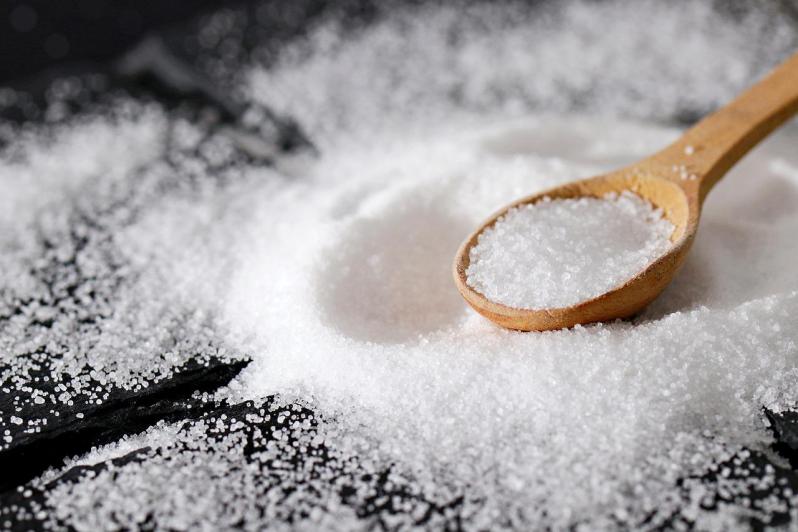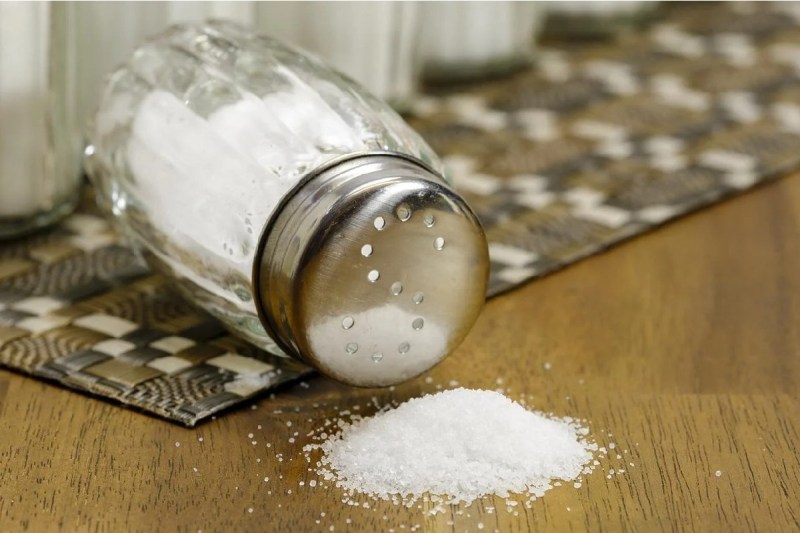
If there’s one “secret” ingredient that makes anything taste more delicious, it’s salt, of course. Well, salt or butter. Usually both. No dish is complete without this miraculous little mineral. After all, where would our French fries, our crispy bacon, our nuts, or deli meats be without salt? And those are just the obvious foods we know and love for their salty goodness.
When you take into account the flavor miracle that salt works on all food, bringing out all of an ingredient’s other features like sweetness and tartness, there really isn’t anything this little chemical can’t do. At least when it comes to flavor. Unfortunately, when it comes to health, salt’s positive attributes fall a bit short.
We all know that too much salt is pretty bad for our health. Too much sodium in the diet can lead to stroke, heart disease, and high blood pressure. Unfortunately, due to all the delicious flavor it adds, Americans are pretty hell-bent on ignoring the health risks of too much sodium intake. In fact, according to the American Heart Association, about 90% of Americans are consuming too much salt. Due to this startling statistic, the FDA is proposing a new rule that will allow the use of salt substitutes in everyday foods like canned goods, condiments, breads, and frozen vegetables.

While salt alternatives have been around for ages, their popularity has been considerably small in the world of dietary substitutions. Unlike sugar alternatives, salt substitutes haven’t taken off as part of a mainstream American diet. Dr. Robert M. Califf, Commissioner of the Food and Drug Administration, says that these new guidelines are part of the FDA’s goal of “creating a healthier food supply” for U.S. consumers.
Johna Burdeos, a registered dietitian, told The Manual, “Salt substitutes are generally safe and fine to consume for most people. They can be helpful for reducing your sodium intake. As is, many Americans consume high amounts of sodium primarily through pre-packaged foods containing high levels of sodium.” This rule, of course, is the FDA’s way of addressing that exact problem.
Salt alternatives get their flavor by substituting potassium chloride for sodium chloride. While this is a perfect solution for eliminating sodium, it could potentially cause problems for those with other possible health risks. Burdeos noted, “Too much potassium can be dangerous for people who have weakened kidneys. As such, salt substitutes can be problematic for people living with conditions such as high blood pressure, kidney disease, heart disease, liver disease, or diabetes. Elevated blood potassium levels can cause symptoms like weakness, nausea, and heart rhythm problems. If you are living with such conditions, do not take salt substitutes unless your physician approves.”
Burdeos noted that anyone on certain potassium-retaining medications, such as those for treating congestive heart failure and hypertension, will want to consult with their doctor since salt substitutes that contain potassium could put them at increased risk for elevated blood potassium levels.
While Burdeos acknowledged that “most of the high sodium intake in the standard American diet comes from our food supply and not necessarily from salt added to our cooking or meal prep,” there are steps you can take to reduce salt intake:
- Use spices and herbs to add flavor instead.
- Add acid to your foods, such as a splash of vinegar, lemon, or lime. These ingredients balance out the flavor profile in meals.
- Eat more wholesome and fresh foods such as lean proteins, whole grains, fruits, and vegetables.
- Read food labels — the fine print on the back that includes the nutrition facts panel and ingredients. Understand that the front of the label packaging with claims do not tell the whole story. Compare products and choose ones made with lower sodium.
- Train your palate. Whatever ways you choose to reduce your sodium intake, understand that it will take time for your palate to adjust, particularly if you’ve been accustomed to eating high-sodium foods.
- If you’re into baking, you can further reduce sodium by incorporating sodium-free baking powder.



